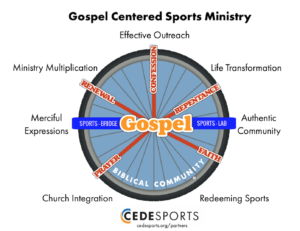Written By Bob Schindler, Chief Operating Officer of CEDE SPORTS
Losing Things
I lost my iPad last week.I was upset for several reasons. First, I like my iPad. I have had it for a long time. I use it primarily for speaking and for reading. I don’t use it every day but, I probably use it at least weekly. It isn’t a critical tool but one I like using.Second, I was upset because I couldn’t imagine replacing it. Since it was not a critical tool, it felt like a luxury that didn’t demand or need to be replaced. My loss felt permanent. Third, I hate to lose things. I hate it because it exposes my inability to perfectly manage life. I don’t think I purposefully set it somewhere and forgot where. I probably set it down when I was in a hurry and wasn’t paying full attention. In either case, it points out my failure, something I don’t readily enjoy having highlighted. This type of event usually sets me into super analytical mode, trying to figure out where I lost it and why, trying to overcome my failure by my efforts, all the time thinking I would turn around at some point and there it would be. In my scrambling, I was about to call one of my friends who was with me the last time I remembered using it to see if they had any ideas.
Finding Encouragement
This morning while on a Zoom call, I looked up in my bookcase and there it was. My iPad was on top of some books and high enough that I didn’t make it out at first. I was relieved and grateful. Earlier in the morning, I prayed that God would encourage me today. I immediately connected the two – finding my iPad and my prayer. You may not agree but this was God’s encouragement to me. That is why I felt grateful. It doesn’t always work this way. Three weeks ago, I lost my sunglasses (I know, there is a trend here but hold off on the age jokes!!!!). I felt weaker and more fragile with this loss. This loss, along with the losses I have walked with others with lately, caused me to pray for that encouragement. It may be coincidence and nothing to do with God. Then again, it may just be the tender hand of a loving Father who saw his son downcast and needing a touch of love. I chose to believe the second.

